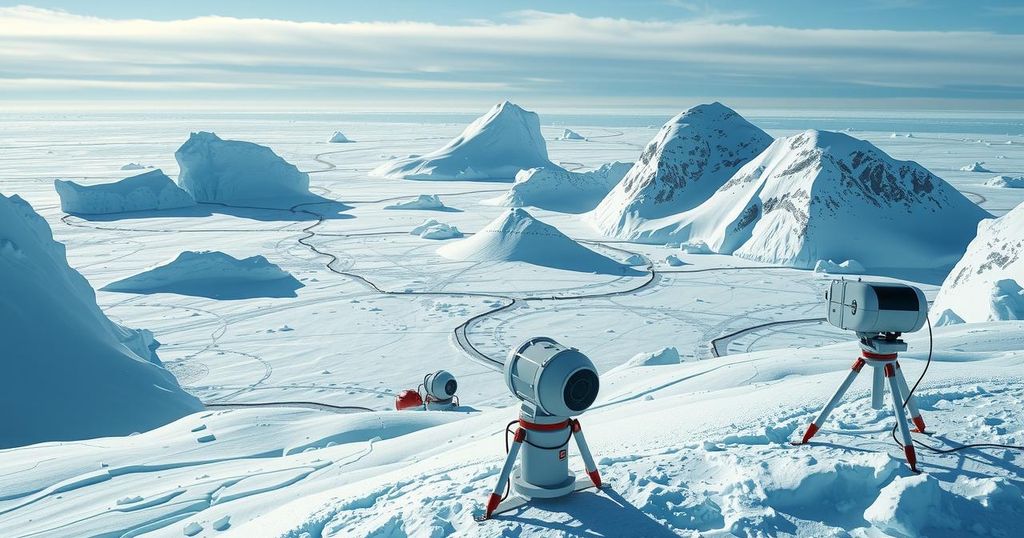Understanding Antarctic Research: Significance, Challenges, and Discoveries
In March 2025, media attention was drawn to South Africa’s Sanae IV base in Antarctica due to allegations of violence among researchers. Geomorphologist David William Hedding discussed the focus on climate change research, the importance of collaboration, significant discoveries, and the challenging working conditions faced by scientists in Antarctica. Understanding this research is crucial for addressing global climate change impacts.
In mid-March 2025, an incident at South Africa’s Sanae IV base in Antarctica sparked significant media attention when a researcher accused another team member of violence. This prompted The Conversation Africa to interview geomorphologist David William Hedding, who has extensive experience conducting research in Antarctica, regarding the nature of scientific work there, the challenging conditions, and the importance of the research conducted.
Currently, the primary focus of Antarctic research is climate change, as the region is a critical indicator of global climatic shifts. With its unique and fragile environment, Antarctica is acutely sensitive to alterations in climate and atmospheric conditions. Additionally, the continent’s remoteness allows scientists to study natural systems with minimal human interference, providing valuable insights into global phenomena, including space weather that affects Earth’s magnetic field and thus impacts technology and human health.
Approximately 30 countries maintain research stations in Antarctica, each contributing to an extensive network of collaboration among scientists. These collaborations are essential due to the isolation of many research sites, logistical challenges, and limited resources. South Africa’s SANAE IV research base typically accommodates 10 to 12 researchers and personnel located in Western Dronning Maud Land, about 220 kilometers inland from the ice-shelf. Researchers generally remain for roughly 15 months, enduring the harsh winter months.
One of the most significant findings from Antarctic research was the discovery of the ozone hole in 1985, which led to the Montreal Protocol’s implementation aimed at phasing out ozone-depleting substances. This crucial breakthrough contributed to the ozone layer’s gradual recovery. Furthermore, ice cores extracted from the continent have enabled scientists to reconstruct climate history over 1.2 million years, elucidating past atmospheric conditions, which is vital for forecasting future climate responses amidst ongoing anthropogenic climate change.
Research activities in Antarctica face significant challenges due to remoteness, extreme cold, and continuous daylight during summer. The vast distances from research stations complicate logistics, prompting teams to collaborate closely and engage in extensive planning. For instance, geologists operating from SANAE IV frequently spend weeks in the field under harsh conditions, relying on snowmobiles for transportation and self-sufficiency while collecting samples.
Understanding the science conducted in Antarctica is pivotal due to its integral role in global systems. Climate change-induced melting of land-based ice could escalate sea levels and disrupt ocean currents, affecting marine ecosystems. This understanding is critical, as the consequences of sea-level rise present significant risks to societies globally, necessitating further investigation to enhance resilience and adaptation strategies.
David William Hedding serves as an Associate Professor in Geography at the University of South Africa, enriching discussions of the scientific endeavors and their significance in Antarctica.
In summary, Antarctic research has critical implications for understanding climate change and its global impact. The unique environment allows scientists to conduct essential studies with minimal human interference. Key discoveries, such as the ozone hole and insights from ice cores, underscore the importance of ongoing research despite the extreme challenges faced in this remote region. Ultimately, understanding the Antarctic’s role in global systems is vital for developing strategies to mitigate the impacts of climate change.
Original Source: allafrica.com




Post Comment